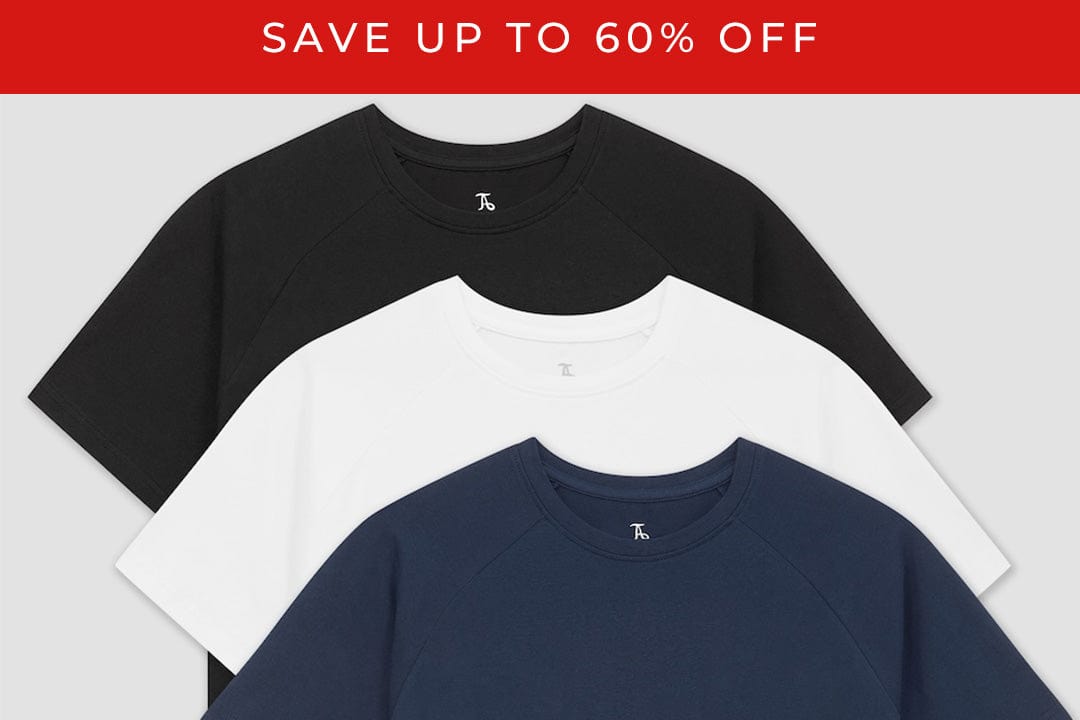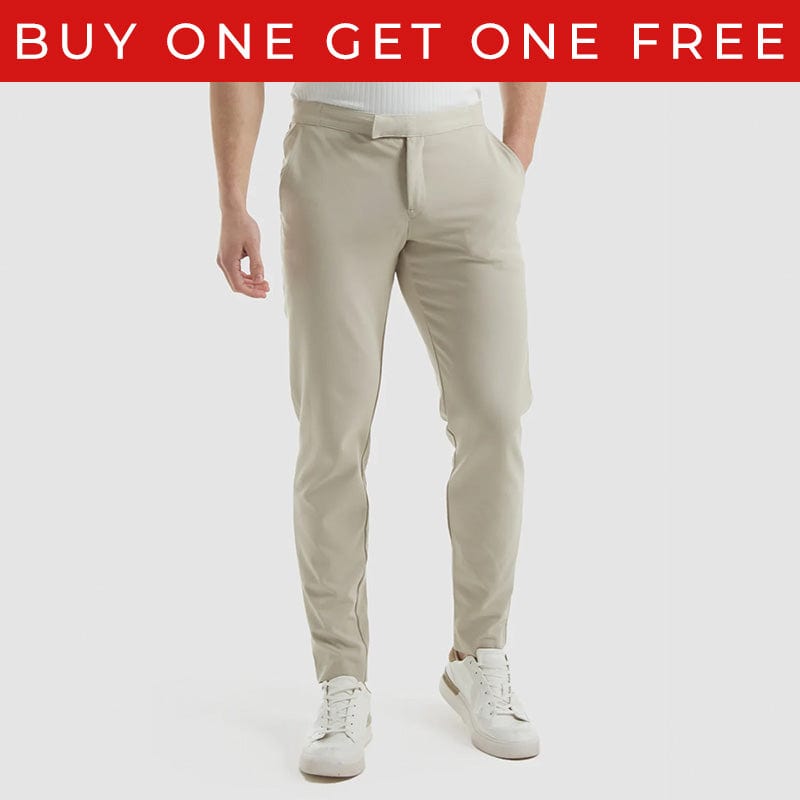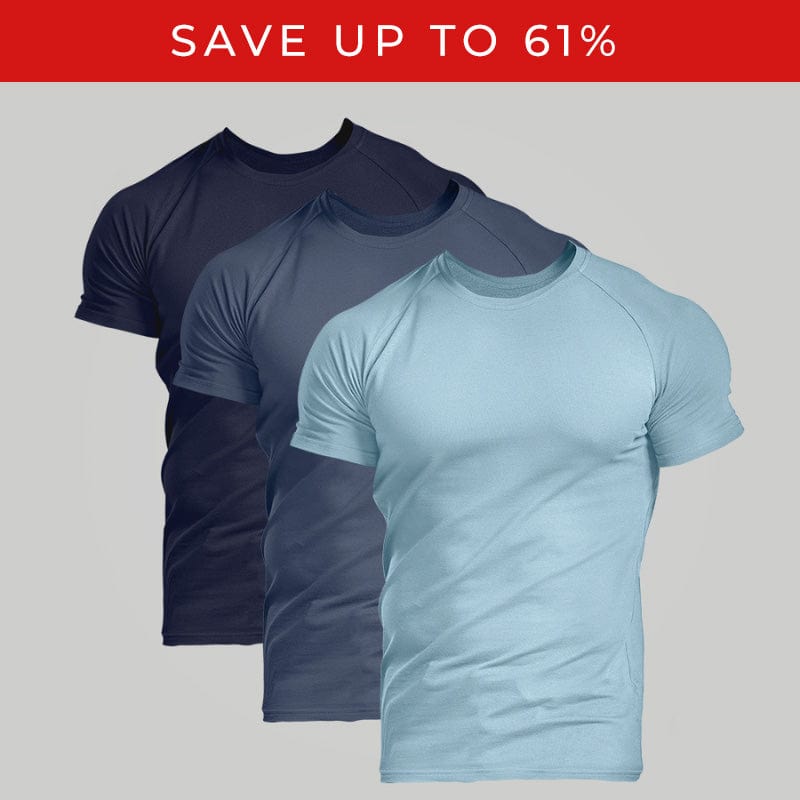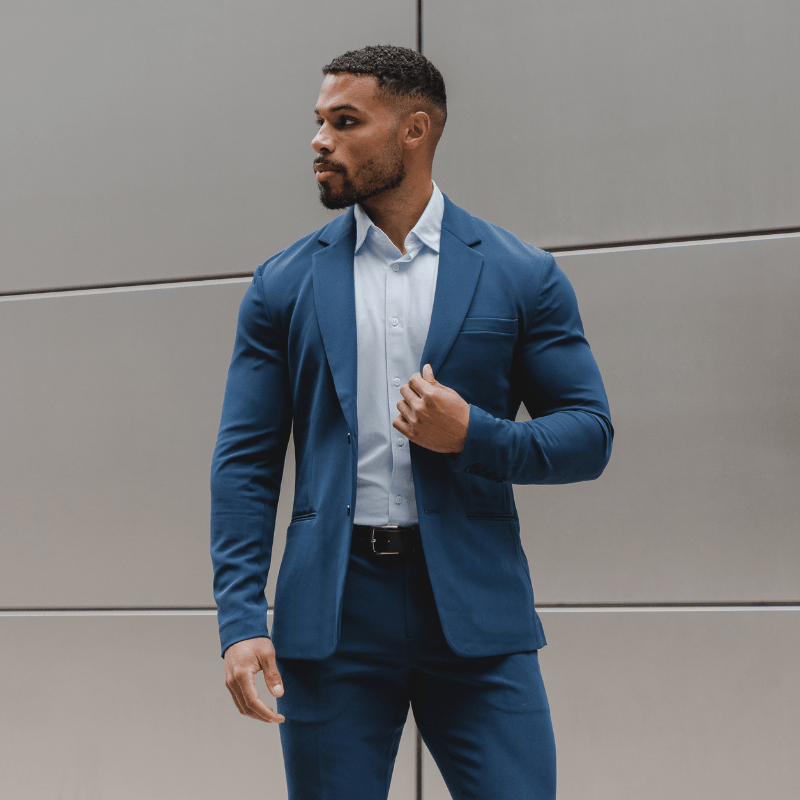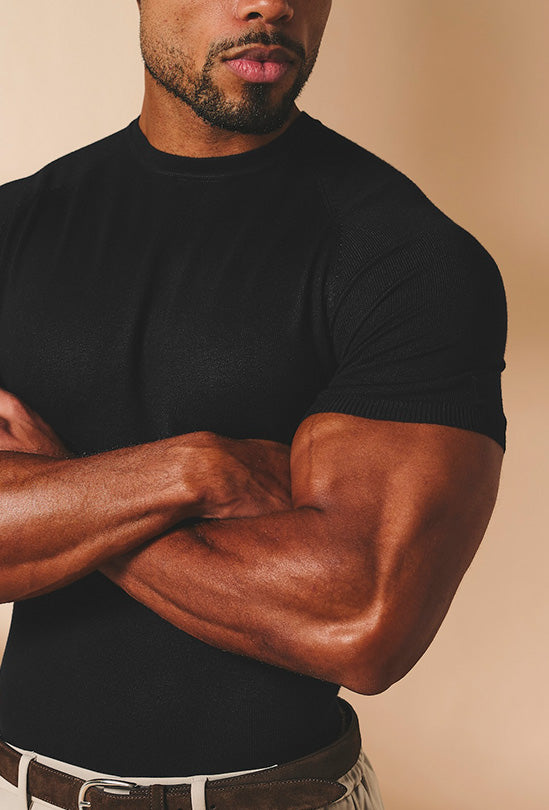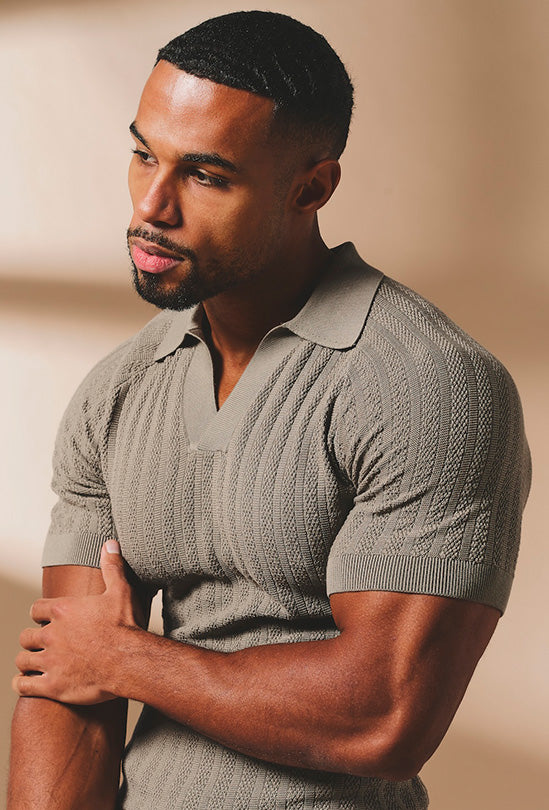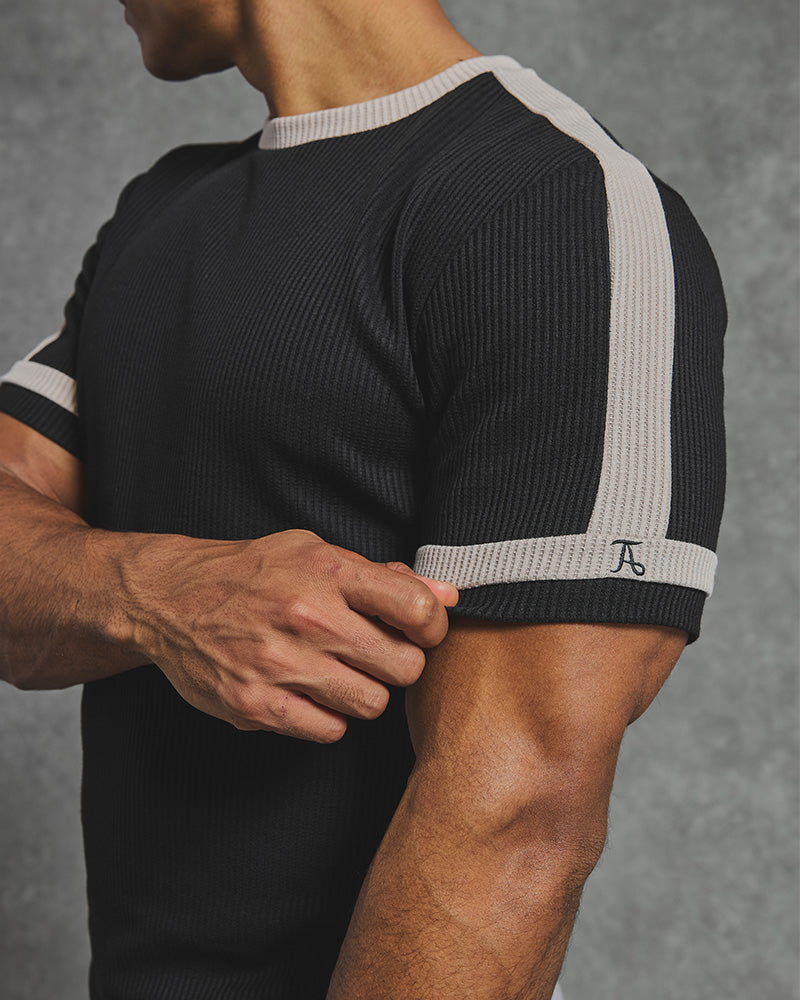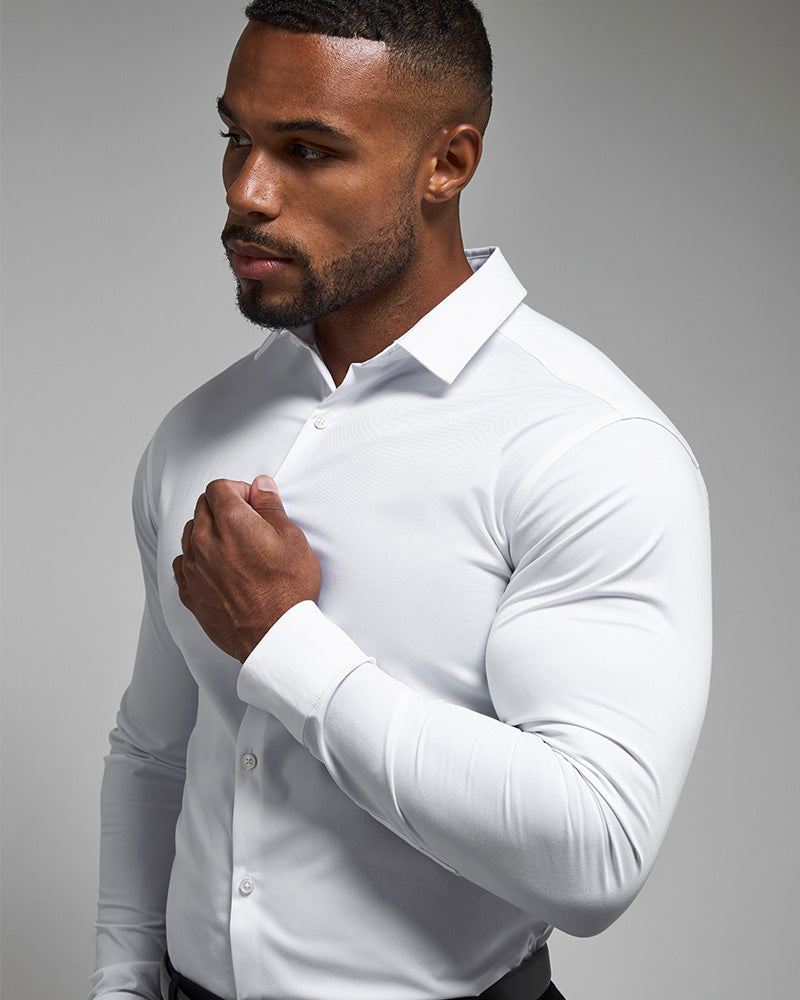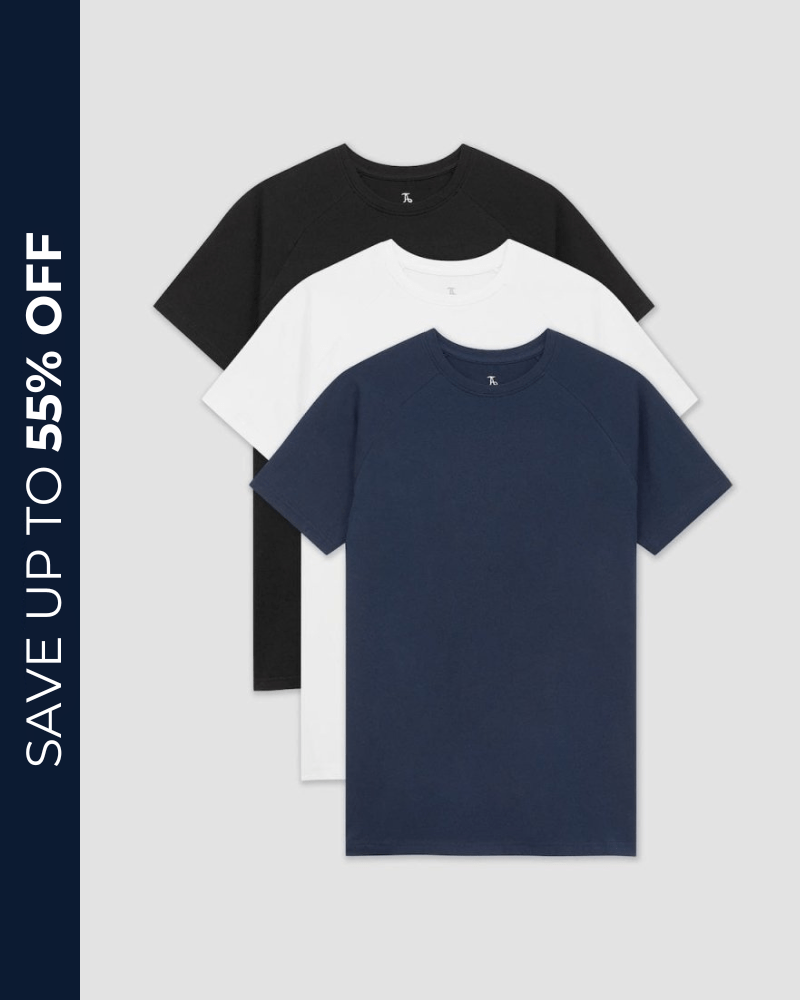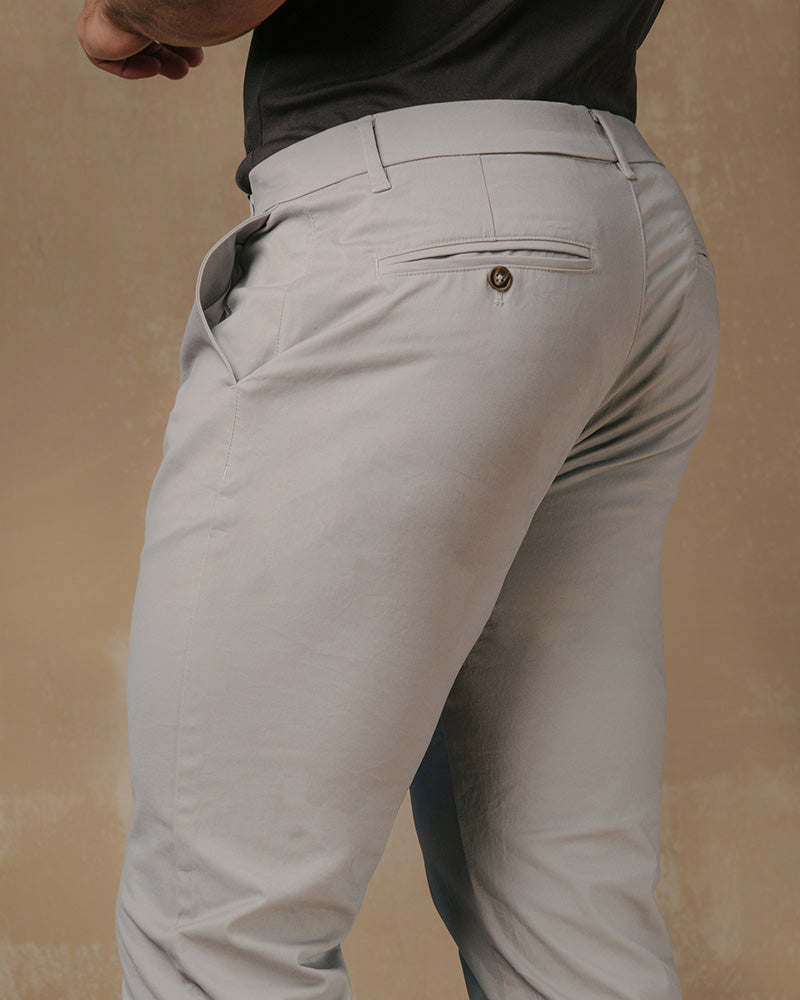FREE SHIPPING $175+
35 DAYS EASY RETURNS
Menu
- Mens
- New In
- New In
- clothing
- Luxe Sweat Collection
- The Merino Shop
- Last Chance Sale
- BUNDLES
- Shop By Occasion
- Size Guides
Free Shipping
Orders $175+35-Day
Easy ReturnsGuaranteed
Perfect Fit
FREE SHIPPING $175+
35 DAYS EASY RETURNS

How a Dress Shirt Should Fit
December 22, 2022 7 min read
Every man needs to have a dress shirt in their wardrobe. They’re suitable for almost any occasion which makes them a highly versatile garment. A dress shirt looks great on guys with a little extra muscle, but you need to pay careful attention to the fit to make sure you don’t look squeezed into your clothes.
TAILORED ATHLETE is the perfect option to provide you with sharp but comfortable clothes that are tailor-made (literally) for athletes and muscular men. With our range of True Muscle Fit T-shirts and dress shirts, you don’t have to worry about inferior quality and fit.
We don’t just stop there, though. TAILORED ATHLETE is also a great choice to find a button-up shirt that fits without needing loads of alterations and tailoring.
In this article, we tell you everything you need to know about how men’s dress shirts should fit, from the collar to the sleeves. If you’re in a rush, check out our detailed fitting guide.
What this article covers:
How Should Men’s Dress Shirts Fit
The Common Problem
Many men don’t know how a dress shirt should fit and often end up wearing one that does not fit them well. This is particularly common with bigger guys. What’s the point of spending all that time at the gym if you’re going to hide your hard work behind some shabby threads.
Men with athletic frames often end up with shirts that are either too big or too small; sometimes both at the same time.
While you may not notice this poorly-fitting dress shirt yourself, others will. If your dress shirt doesn’t fit well, it looks unprofessional and sloppy.
In most circumstances, the dress shirts you get straight off the rack aren’t going to be a perfect fit. You might need to get a tailor to adjust it to fit your measurements. Alternatively, you can buy a custom-made dress shirt that’ll fit you perfectly from the start.
There are different types of shirts and knowing how essential shirts fit or how a short sleeve shirt should fit will save you a lot of time when searching through a store’s catalog. As a general rule: avoid anything with terms like “classic,” “relaxed,” or “regular” since these are made with average body types in mind and aren’t meant to show off people on the bulkier side.
How Should Dress Shirt Sleeves Fit
The sleeves on dress shirts are usually cut close to the arms. This makes the shirt look attractive, however, depending on your preference and size, this may not be the most comfortable for you. Average armhole size is going to be too narrow and can be uncomfortable and even cut off circulation if the shirt doesn't have any give.
To prevent discomfort, go for something that was made with your shape in mind from the get go.
The correct size of your sleeves depends on the size of your shoulders and forearms. If you have big biceps, it’s sometimes difficult to find dress shirts with a big upper sleeve and a trim lower arm sleeve.
Check out TAILORED ATHLETE’s catalog of True Muscle Fit dress shirts for men for something that’s sure to fit your perfectly. Our shirts are designed to allow for a broad chest and shoulders with bigger arms, but they taper towards the waist which is perfect at showing off your abs.
Forshirts that make you look muscular and show off your hard work, TAILORED ATHLETE is the perfect solution.
The perfect sleeve length for a dress shirt means that the cuff should end precisely at the base of the thumb. It’s difficult to judge this as your shirt will move when you stand and sit down. You need to make sure that your sleeve is not too long and your cuff isn’t too wide otherwise the shirt wrist will come down too low and will look awkward.
Dress Shirt Fitting Guide
Collar
So, how should a dress shirt collar fit?
Collar size is measured in inches from buttonhole to button when laid flat. This range is often between 14" and 18".
You should be able to button the collar easily with space for two fingers to fit between the collar and your neck. This exact range is necessary to ensure that it’s not too loose or too tight. If you’re not planning on buttoning up the top button, this isn’t a hard rule, but if you ever want to wear the shirt with a tie, you need to check this.
If the collar is too tight, it’s going to pinch your skin underneath.
Conversely, you’ll know if the collar is too loose if it doesn’t touch your neck. Instead, it will rest on the whole area surrounding it. There will also be a large gap that your four fingers can squeeze into.
A properly fitting collar will touch the skin around the neck, but won’t press against it. You’ll be able to slip two fingers comfortably in between your neck and the collar at all times.
Shoulder
The seam where the sleeve is attached to the body of a fitted dress shirt should reach close to the tip of your shoulders.
Most brands cut their shirts too large to fit more people. When this happens, the seam tends to slide down onto the arm. For muscular guys, an average dress shirt is going to stretch over the shoulders and leave you with creases where you don’t want them. You’re also going to wear your shirt out much faster and even potentially break it since you fill it out more than the designers expected.
If the shoulder seam is riding up towards your neck, that means that the shirt is too tight. This is usually because of the shape of the armhole.
You can tell if the shoulders are too tight because the shoulder points will shift from your shoulders towards the neck. Part of the sleeves can also begin to rest over the shoulders which will cause wrinkles.
The shoulders are too loose if the shoulder points slump off and down onto the upper part of your arms. The shirt will balloon and make your upper body look larger. You can’t take this to be tailored because these points are difficult to adjust.
The shoulders fit correctly if the shoulder points sit perfectly at the edge of your shoulders. This is where the plane of the shoulder connects with the plane of the outer arm. The hole where the sleeve joins the body is big enough that it doesn’t cause tugging or twisting of the shoulder seam.
This allows you to move your arms comfortably and freely.
Armholes
The armholes should be comfortable when moving.
They shouldn’t be so tight that they cut into the underneath of your arm. However, they shouldn’t be so loose that there’s a large amount of excess fabric around your armpit. If you want to check this, you can tuck your shirt into your pants.
If you lift your arms at 45 degrees and your shirt lifts out of your pants more than an inch, then your armholes are probably too low.
Chest
You will be the most comfortable if your dress shirt fits correctly around your chest.
A fitted shirt should hug your body but not be uncomfortably tight. Your chest should "fill out" the shirt properly. You’ll know if the chest area is too tight if the buttons pull when you're standing still with your arms relaxed.
Cuffs
There are two main types of cuffs: French and Barrel. This affects the look of your shirt, but the fit of the two should be the same.
When the cuffs are buttoned, leave your arms by your side and bend your wrist so your palms are facing the ground. When you do this, the sleeves should barely touch the top of your hand. You can have your cuffs lightly grazing your hand but anything more than that and the sleeves will need to be hemmed.
Your cuffs should be tight but not too tight to restrict movement. However, they shouldn’t be so loose that the cuff moves up your hand.
You’ll know your cuffs are too tight if the shirt has sleeves that can’t be pulled off without unbuttoning the cuffs.
If the cuffs are too loose then they will be wide enough to slide loosely over a watch. There will also be enough room for some fingers to go in between the cuff and your skin.
You’ll know the cuffs fit correctly when it’s close to the skin but still has space between the fabric and your wrists. You’ll easily be able to put the shirt on and take it off without unbuttoning the cuffs.
Body
Men's dress shirts should taper from the chest to the waist. They should follow the contours of the body and create a clean line between the shirt and pants when tucked in.
A well-fitted shirt often has two vertical back darts. These are centered over the small of your back, which allows the shirt to taper at the waist.
If it’s too tight you’ll notice that the buttons strain to close. This causes wrinkles to form around the buttonholes. If it’s too tight it may cause some pulling on the sleeves. This puts pressure on the seams of the shoulders.
If it’s too loose then the excess fabric usually billows around your chest or waist. A loose shirt will cause it to look like a “muffin-top” from the waist area.
The shirt is perfectly fitting if you have no problem buttoning it up. The underside of the placket is meant to rest lightly against the midpoint of your ribcage. If it’s the correct fit then the shirt can be tucked in without it billowing.
Length
A well-fitting dress shirt is whichever length suits your body type best. Some dress shirts may be cut too short or too long, however, this depends on the length of your torso. It all comes down to personal preference too. Some men prefer their shirts longer and some prefer them shorter. If you prefer to tuck in your shirt, then a longer length may be best so that it never gets untucked. However, if you want to wear it untucked, then a plain hem that is the same length all way around, would be best.
Did you find our blog helpful? Then consider checking:
- Best Dress Shirts for Athletic Build
- Best Dress Shirts for Bodybuilders
- What Is the Difference Between Fitted and Athletic Fit Dress Shirts
- Clothing for Rectangle Body Shape: What Can I Wear?
- Clothing for Triangle Body Shape
- Bodybuilder clothing for men
- Clothes for Muscular Men: The Solution You Need
- Best Athletic Clothing
- Tailored vs Slim Fit: Which Looks Best?
- Custom-fit vs Slim-fit - Which Fit Suits You Best?
- Sharp fit vs slim fit
- Relaxed Fit vs Loose Fit: Everything You Need to Know
- Fitted vs Regular Fit: Which Is Best for Your Body?
- Drop Shoulder vs Standard Fit - Which Is Right for Athletes?
- Relaxed vs Oversized Fits: Do They Work for Athletic Builds?
Leave a comment
Comments will be approved before showing up.

